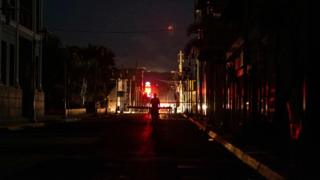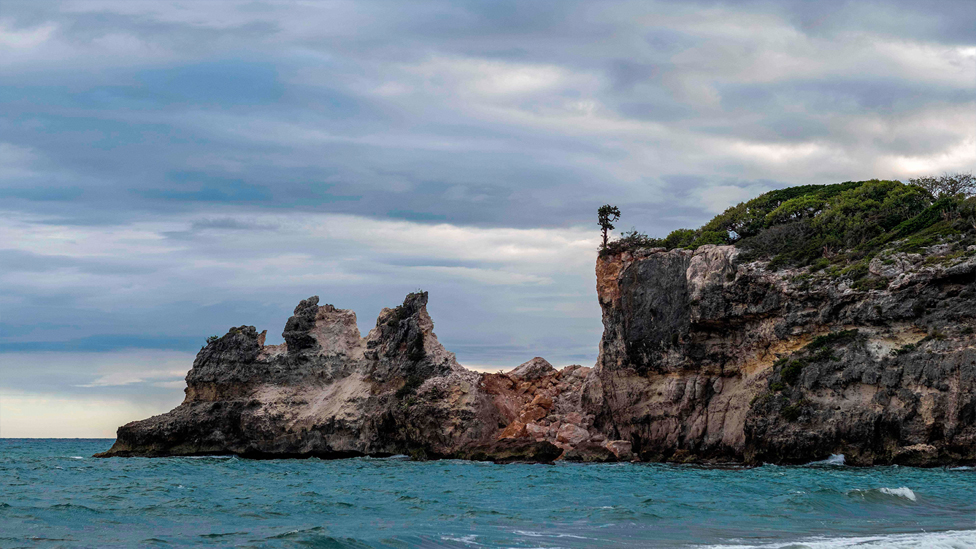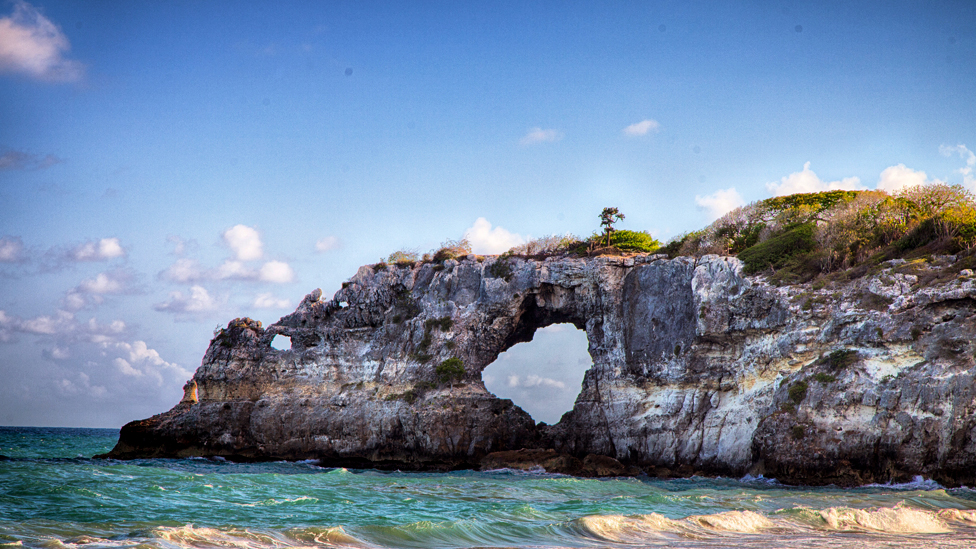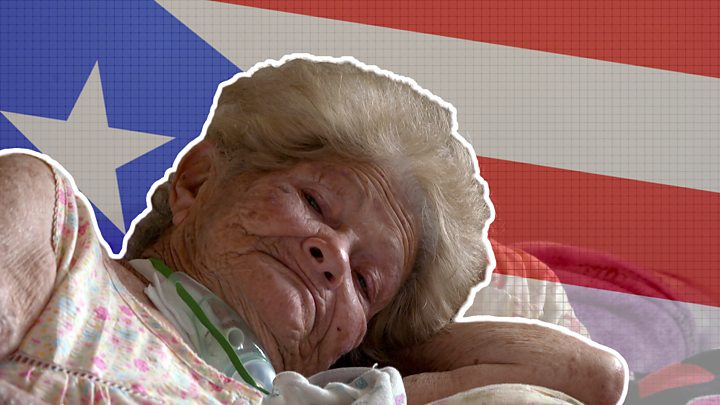Puerto Ricans still without power after earthquake
Two-thirds of Puerto Rico is still without power, and a quarter is without running water, after a series of earthquakes this week.
At least one person died and 300 homes were destroyed in a 6.4-magnitude quake and 6.0 aftershock on Tuesday.
It was the strongest quake to hit the island in 102 years.
Thousands of people have since slept outside or in their cars, fearful of being indoors during another quake that could cause their homes to collapse.
The south of the island was hardest hit, with dozens of homes in towns including Yauco, Guanica and Guayanilla collapsing.
On Tuesday, Governor Wanda Vazquez declared a state of emergency – activating the island’s National Guard to help with recovery efforts.
The earthquakes knocked out Puerto Rico’s main generating facility, the Costa Sur plant, and damaged other infrastructure.
Officials have said that power is unlikely to be restored to the island’s three million population until this weekend, and it will take at least a year to repair the Costa Sur plant.
Until Tuesday, the plant supplied about a quarter of Puerto Rico’s power, AEE electricity agency head Jose Ortiz told local media.
When did the earthquake hit?
Tuesday’s earthquake struck at 04:24 local time (08:24 GMT), just south of the Caribbean island at a depth of six miles (10km), according to the US Geological Survey (USGS). It was followed hours later by a 6.0 magnitude aftershock.
A 73-year-old man in the southern city of Ponce was the only confirmed death.
Mayor Mayita Melendez said the man died when a wall fell on him in his home, Puerto Rican newspaper El Nuevo Dia reported.
Eight others were injured, Ms Melendez told WAPA television.
A day earlier, the island was shaken by a 5.8-magnitude quake that destroyed a popular tourist rock formation, damaged homes and caused power cuts.
Interactive
Punta Ventana before and after collapse
2020
2014
The USGS reported that these quakes were part of an ongoing series that began on 28 December and have caused hundreds of small tremors in the region.
Puerto Rico, a US territory of about 3.2 million people, is situated between the North America and Caribbean tectonic plates, making it vulnerable to earthquakes.
The island is still recovering from Hurricane Maria, a Category 5 storm that devastated parts of the Caribbean in September 2017.
In Puerto Rico alone, the hurricane is estimated to have killed 2,975 people and caused $100bn (£75bn) of damage.
Source: Read Full Article






